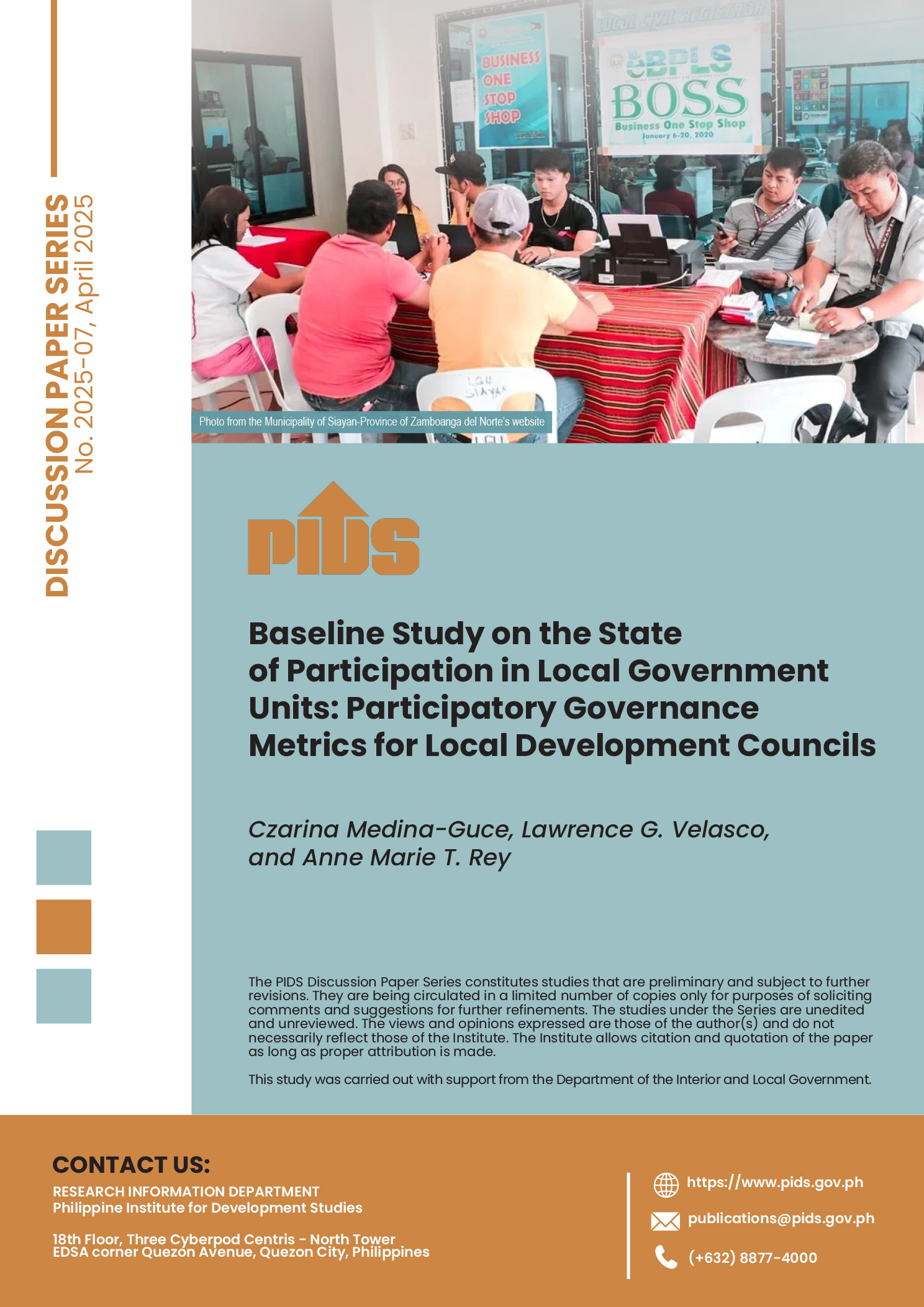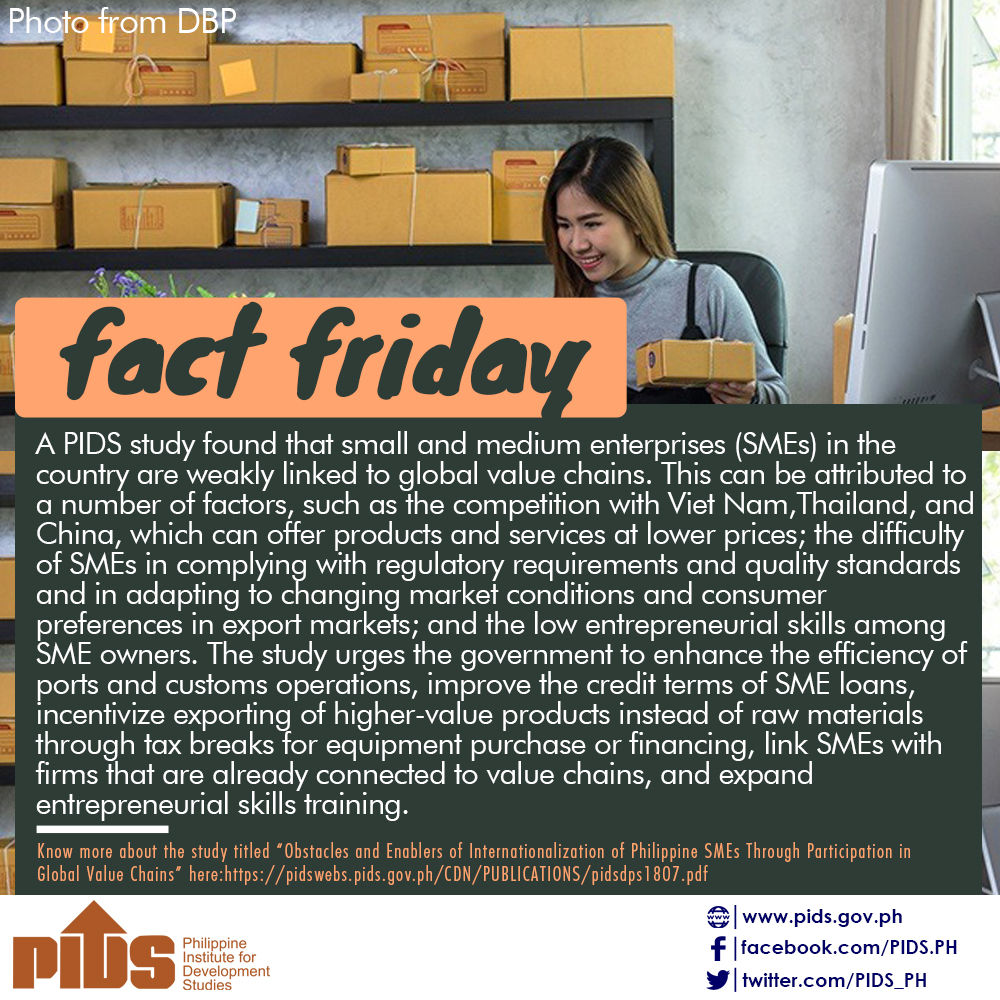The development of small and medium enterprises (SMEs) in the Philippines can be achieved by improving marketing and network capabilities through trade missions, international trade exhibitions, and export assistance, a study released by the Philippine Institute for Development Studies (PIDS) showed.
The policy note titled, What factors affect the business success of Philippine SMEs in the food sector?, discussed the success factors of SMEs, particularly the food manufacturing and food service sector.
The study, authored by Elaine Borazon, also provided implications on how SMEs can be assisted to achieve business success and, therefore, enhance their capacity to engage in international trade.
Small enterprises in the Philippines are those with 10 to 99 employees or have a total asset value of P3 million to 15 million, while medium enterprises, are businesses with 100 to 199 employees or have a total asset value of P15 million to P100 million.
The study said both marketing and network capabilities positively affect business success.
"They contribute to the firm’s competitive advantage and business success because they are deeply embedded in the organization, which makes them rare, inimitable, and immobile,” it said.
The report added firm size positively affects business success since bigger organizations are more visible. This leads to an increased cognitive legitimacy, which stimulates business success, it said.
"Firm size positively influences business success because larger firms are more visible to regulatory agencies that force firms to meet their requirements,” the policy note said.
"Thus, regulatory bodies should have simpler frameworks to increase the compliance of SMEs with regulatory requirements that can enhance their local and global recognition,” it added.
It also said firm age positively affects business success because it would take time for firms to become legitimate, to develop standardized procedures, and to build trust with business partners.
"The government can give technical assistance to new enterprises in establishing such procedures. It is important that SMEs should first be locally competitive before they can integrate globally through trade and investments,” the study said.
A total of 233 small and medium food enterprises from various parts of the country participated in the study.//












